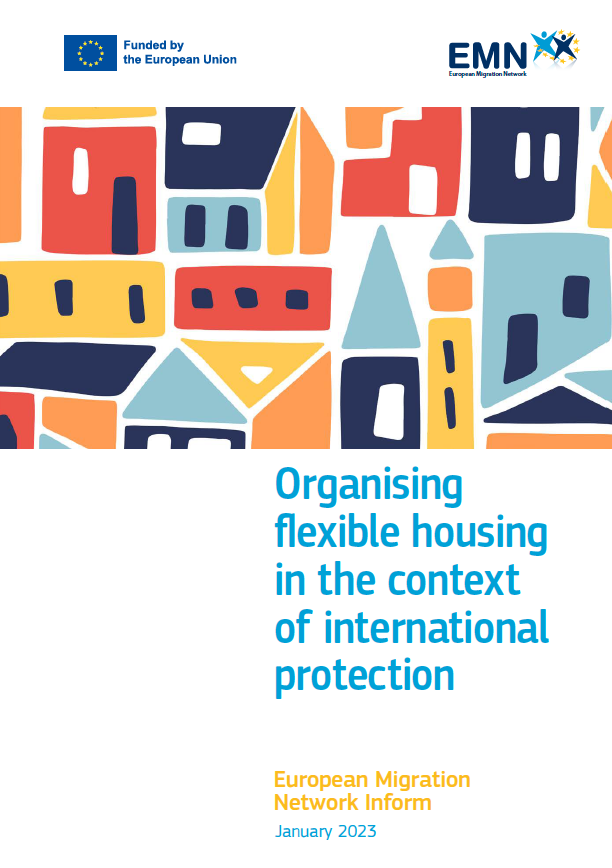The inflow of applicants for international protection can be subject to rapid, substantial changes. Together with other factors, this can lead to pressures on the reception systems of EMN Member and Observer Countries, including their capacity to provide housing. To manage changes in demand for housing, countries need to be able to both quickly upscale their capacity to provide accommodation for all those in need, and to downscale, when necessary, for example, by utilising accommodation centres for other purposes.
The Reception Conditions Directive 2013/33/EU serves as the legal framework for EU Member States for laying down common standards for the reception of applicants for international protection in the EU Member States. The provision of housing is included under the definition of ‘material reception conditions’ in the Reception Conditions Directive alongside food and clothing, provided in kind, or as financial allowances, or in vouchers, or a combination of the three, and a daily expenses allowance.2 Art. 18 (9) of the Reception Conditions Directive provides that, in duly justified cases, EU Member States may exceptionally set different modalities for material reception conditions that are provided in Article 18 for a period which should be as short as possible when the housing capacities normally available are temporarily exhausted. In any event, Member States shall ensure that arrangements provide a dignified standard of living and cover basic needs.
In this context, this inform aims to present information that can support policy makers to better organise their respective reception systems, in a flexible manner, whilst anticipating further changing inflows in the future. It also aims to inform the public, particularly as housing of applicants for international protection is a frequent topic of public and political debate. This inform was prepared on the basis of contributions from 25 EMN Member and Observer Countries.
This inform covers the provision of housing to international protection applicants. The housing of other groups (i.e. beneficiaries of international protection and persons whose application for international protection has been rejected as well as beneficiaries of temporary protection) is also included. This is because challenges in the outflow to housing for these groups may impact on the reception capacity for applicants for international protection. The inform focuses on accommodation only and other services related to reception (e.g. access to healthcare, education or employment) are not covered.


